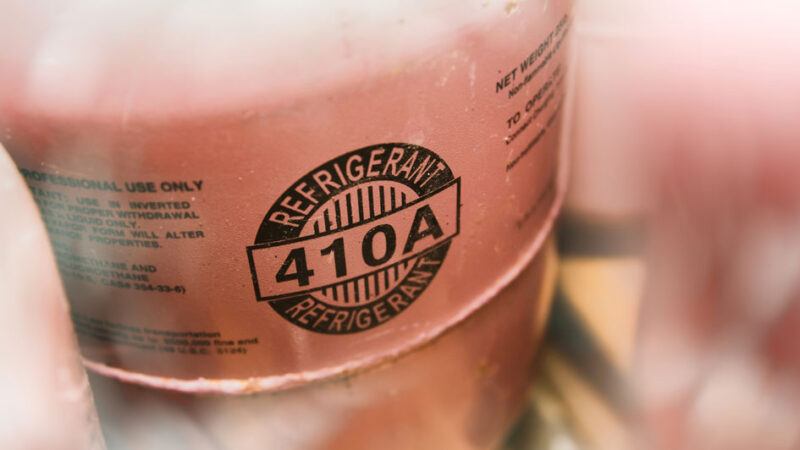5 Reasons to Not Cover Your Air Conditioner in the Winter
As the scorching summer sunshine starts to fade and the refreshingly cool weather of fall starts to settle in, residents of Fredericksburg start preparing their homes and yards for the winter. For many, that leads to the question of whether they need to cover their outdoor air conditioner for the winter.
While it may seem like a great idea, in reality there are a number of reasons why you shouldn’t cover your AC unit in the winter. In addition to not being necessary, covering your outdoor air conditioning equipment can sometimes cause problems.
Here, the experts at Childress Heating & AC share five reasons why covering your air conditioner doesn’t need to be on your fall to-do list and what you should do instead.
1. Your AC can Handle Snow
Outside AC units are built to withstand harsh weather conditions like snow in the winter. These machines are built with sturdy materials and hardware that can handle the outdoor elements without damage. The coils and fins of the unit are constructed to resist corrosion, and the housing is manufactured to protect the internal elements from moisture and debris.
2. Covered AC Systems may Encourage Mold Growth
One of the reasons you should avoid covering your air conditioner in the cold months is because doing so can trap moisture—which is definitely not what you want in your outdoor unit. That’s because sealing moisture inside the unit creates the perfect conditions for mold and mildew to spread.
Mold and mildew not only have a bad odor, but they can also pose health risks, especially for household residents with respiratory issues or allergies. Also, the trapped moisture can corrode the internal components of the AC unit.
Rather than covering the unit, instead provide proper drainage and keep the area around the unit free of debris, allowing for efficient airflow and preventing moisture buildup.
3. Your Covered Air Conditioning Unit Can Host Animals
People aren’t the only ones who make plans for winter. Animals that live around your home are also searching for a warm, cozy place to crash for the wintry months. For many animals, a covered air conditioner is an awesome winter home.
Birds, mice, chipmunks and even rats often make winter dens inside covered air conditioners. Animals dwelling in a covered air conditioning unit can cause numerous problems. Rats can chew through wires, insulation and other connections, causing damage that may require pricey repairs. Debris animals bring into the AC to create a warm and comfortable place to get out of the cold weather can obstruct airflow and ventilation, lowering the efficiency of the AC and potentially causing it to overheat. Additionally, animal excrement can result in unsanitary conditions and potent odors.
Leaving your air conditioner uncovered helps discourage wildlife, because an uncovered AC offers less shelter from the elements than a covered unit. That’s better for your cooling system—and leaves you with less mess to clean up and things to repair once the snow melts.
4. An AC Cover Restricts Airflow
Another reason not to cover your AC unit in the winter is because a cover restricts airflow through the unit. Adequate airflow is crucial for the AC system because it assists heat exchange and allows the unit to cool efficiently. When airflow is restricted, the system has to work harder to achieve the desired temperature, resulting in greater energy consumption and strain on the components.
In addition, if you run your AC without realizing that the outside unit is covered or because you simply forgot, it could result in a range of problems. One issue is that the shortage of proper airflow could cause the compressor to overheat, causing its failure or damage. That’s why it is essential to ensure the outdoor unit has no obstructions and is not covered to maintain the best possible airflow.
5. AC Maintenance Works Better Than Covering Your Air Conditioner
The bottom line is, it’s lots more effective to do a little maintenance for your air conditioning unit than to cover your outside AC unit.
There are several key maintenance tasks you should prioritize to ensure optimal performance and longevity of your AC unit. First, it’s a good idea to look at your outdoor AC unit regularly and remove any debris such as leaves, sticks and dirt to promote proper airflow. Second, inspect and clean the coils, fins and filters to make sure you don’t see any dirt and dust buildup that would hinder effective heat exchange or airflow.
Routine air conditioning maintenance not only improves efficiency, but it also helps extend the unit’s life span, decreases energy consumption and prevents costly repairs. Rather than using a cover, investing time and effort into routine air conditioning maintenance is a proactive approach that can substantially benefit your entire HVAC system in the long run.






